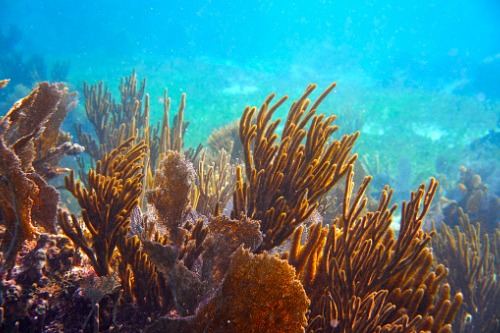

Willis Towers Watson (WTW) has announced the launch of a multinational partnership with the Mesoamerican Reef Fund to develop and implement insurance in a bid to help protect and restore the 1,000-kilometre reef system along the Caribbean coast.
In a Press release, WTW noted that the Mesoamerican Reef Insurance Program is the first multinational collaboration that will design and implement parametric insurance to cover hurricane risk to the Mesoamerican Reef (MAR) and the communities that depend on it for protection, food and livelihoods. Pilot insurance for reef sites in Mexico, Belize, Guatemala and Honduras will enhance the climate resilience of nearly two million beneficiaries.
The Mesoamerican Barrier Reef System is listed as critically endangered by the International Union for Conservation of Nature’s Red List of Ecosystems. The reef system is home to 65 species of coral and more than 500 species of fish along with many other protected species. Coastal wetlands, mangrove forests and seagrass beds also protect against storms and coastal erosion.
Thanks to the effects of climate change and other stressors, the risk of hurricane impact leading to irreversible coral degradation and mortality has grown.
“Early action to clean up the reef and jump-start regeneration and recovery is critical to reducing the overall impact of lost ecosystem services – in both social and economic terms,” WTW said. “However, the restoration of natural ecosystems is often not a priority in the aftermath of extreme events, as resources are focused mainly on grey infrastructure and property.”
The new project is being co-funded and implemented by WTW and the Mesoamerican Reef Fund, the regional financing system for large-scale maintenance, conservation and restoration of the reef system. MAR Fund will be the policyholder for the program.
“In 2018, we launched the Global Ecosystem Resilience Facility at the World Ocean Summit in Cancun,” said John Haley, CEO of Willis Towers Watson. “We are delighted to be back in Central America, partnering with the MAR Fund and supported by the InsuResilience Solutions Fund, to build resilience of the Mesoamerican Reef and its communities.
“Marine ecosystems may be ‘free’ public goods, but their active maintenance is essential in sustaining their health and value. This program helps us learn how insurance can provide a unique shared governance framework to manage reefs and other valuable natural ecosystems.”
“This collaboration is a great opportunity for the MAR region,” said María José González, executive director of MAR Fund. “We see the insurance model as a risk management tool that will provide immediate funds for reef restoration, thereby contributing to strengthening coastal resilience, and to the recovery of the MAR and the environmental services it provides. MAR Fund will be the policyholder and will manage the payouts. We will work closely with national governments and other partners and stakeholders to build the needed capacities for emergency response and preparedness.”
The InsuResilience Solutions Fund (ISF) has signed the grant funding agreement for the program.
“This partnership combines the expertise of local partners and the insurance sector, ensuring that products are developed according to the needs of the vulnerable population,” said Annette Detken, director of the ISF. “Our grant will co-fund the development and implementation of this innovative insurance product insuring coastal ecosystems that provide much-needed services for local communities. We believe this insurance solution could serve as a model for other countries seeking to protect important natural resources like coral reefs.”
Payouts under the program will be triggered by the intensity of a hurricane, converted to an estimate of the extent of damage to the reef. A group policy will cover the pilot reef sites, with a tailored payout structure reflecting the cost of response at each site at different damage levels.
